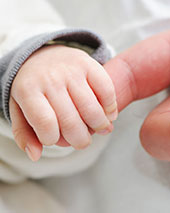Up to this point in the course, compassion has played a subtle, but important role in our meditation practice. Self-compassion may be the most important component of MBSR - it’s the oil that makes the gears of mindfulness work. Without it, the practices are at best, dry and mechanical, and at worst, harsh and counter-productive. By continually bringing your attention gently but firmly back to the object of awareness, you are learning to be less critical of yourself when your attention wanders, and you may be discovering that your ability to concentrate has improved, both in meditation and in work and life.
Last week, we began the process of moving our awareness beyond ourselves by paying attention to the way we communicate with others. Indirectly, this brought a level of compassion to our communication with family, friends, and co-workers. This week, we explore our natural tendency to connect and care about others, and consider the value and potential of being compassionate even beyond our closest relationships.
Videos and Reading
The first video, The Evolutionary Roots of Compassion, by Dacher Keltner of U.C., Berkeley, provides evidence for the idea that we, as humans, have a deep-seated inclination to care for others. The article, Survival of
the Kindest, indicates that even Darwin believed this. As natural as the capacity for compassion is, Matthieu Ricard, a Buddhist monk who has logged 50,000 hours of meditation practice and who also has a PhD in cellular genetics, makes the case for consciously supporting this capacity in the video, Cultivating Altruism.
We also explore the natural linkages there are with mindfulness and compassion in Shauna Shapiro's video, How Mindfulness Cultivates Compassion, and her article, Does Mindfulness Make You Compassionate?
In our culture, it can be argued that the person we are least kind to is ourselves, and in Self-Compassion, Emma Seppala points out our tendency to be overly critical of ourselves and describes some ways to cultivate a healthy self-compassion. In the video, Overcoming Objections to Self-Compassion, and in the article, The Five Myths of Self-Compassion, Kristin Neff explores misconceptions about self-compassion, including the belief that motivation requires self-criticism, and the idea that being kinder to ourselves makes us complacent and less effective.
Daily Practices
In keeping with this theme, we introduce the Lovingkindness Meditation, which we suggest you try at least once this week. It is a shorter practice (13 min), so when you do this meditation, you can extend it for another 17 minutes to give yourself a full 30 minutes on that day. Or, if you'd like to extend a bit of lovingkindess to yourself(!), you can stop at the end of the 13 minute meditation.
For the formal practice this week, you can choose between any of the three main practices you've experienced so far: Body Scan, Sitting Meditation, Yoga, including at least one day of the Lovingkindness meditation.
For the informal practice, on any given day, you may choose any of the practices you've experienced so far (e.g., simple awareness, mindful eating, STOP, Soften-Soothe-Allow) and enter your experience on the practice sheet.
Videos
The Evolutionary Roots of Compassion - Dacher Keltner [4 min]
Cultivating Altruism - Matthieu Ricard [18 min]
How Mindfulness Cultivates Compassion - Shauna Shapiro [13 min]
Overcoming Objections to Self-Compassion - Kristin Neff [12 min]
Reading
Survival of the Kindest - Paul Ekman
Does Mindfulness Make You More Compassionate? - Shauna Shapiro
Self-Compassion - Emma Seppala
The Five Myths of Self-Compassion - Kristin Neff
Practice sheets
Formal Practice [PDF] [or WORD format] - Body Scan, Sitting, Yoga (+ Lovingkindness)
Informal Practice [PDF] [or WORD format] - Any (Simple Awareness, Mindful Eating, STOP, Soften..., etc.)
Supplementary materials related to this week's topic
Compassionate Ethics in Difficult Times video by the Dalai Lama [11 min]
Compassion and Mindfulness video by Jon Kabat-Zinn [5 min]
The Mindful Path to Self-Compassion book by Christopher Germer
First, Forgive Yourself interview of Tara Brach by Tej Rae
Universal Compassion video by Sylvia Boorstein and Sharon Salzberg [10 min]
Unconditional Love video by Tara Brach [29 min]
Mindfulness and Self-Compassion video by Kristin Neff [21 min]
Making Friends with Yourself article based on Pema Chodron's "4 Keys to Waking Up"
NOTE: If you are compiling a manual based on the suggestions in MBSR Manual, you would print a copy of this page as well as the Readings and Practice Sheets given above. For a version of this page which has been reformatted for your manual go to the printer-ready version of this page.



